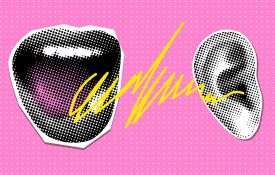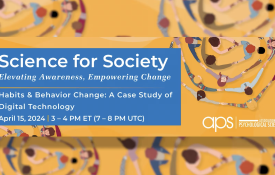
APS Editorial Fellows to Help Build a Pipeline of Diverse Editors
Meet the six psychological scientists representing different cultures and nationalities who have been named inaugural APS Editorial Fellows.

Meet the six psychological scientists representing different cultures and nationalities who have been named inaugural APS Editorial Fellows.

A sample of research on oppressed groups engendering implicit positivity, compassion fatigue as a self-fulfilling prophecy, gaze-triggered communicative intention, and much more.

Audio associations can help us recognize objects more quickly, suggesting that sounds can help us make fine-grained discriminations between objects, new research suggests.

Stigma about mental health treatment is a major contributor to the world’s mental health crisis, policy experts say. Psychological research is uncovering strategies that persuade people to seek help.

Can psychological scientists divorce their own opinions and beliefs from their professional work? This APS Fellow’s research aims to answer that question.

How much of our behavior is habitual? APS President Wendy Wood and her colleagues answered this question on April 16 during “Habits and Behavior Change—A Case Study of Digital Technology,” an APS Science for Society webinar. The webinar is now available for registrants and APS members.

Social psychologist Elizabeth Necka shares her experiences as a program officer at the National Institute on Aging.

This recognition is meant to forge connections between research in psychological science and dental, oral, and craniofacial health at the 2023 APS Annual Convention.

The National Institute of Dental and Craniofacial Research (NIDCR) at the National Institutes of Health (NIH) awarded two poster presenters at the 2023 APS Annual Convention with the Building Bridges Award.